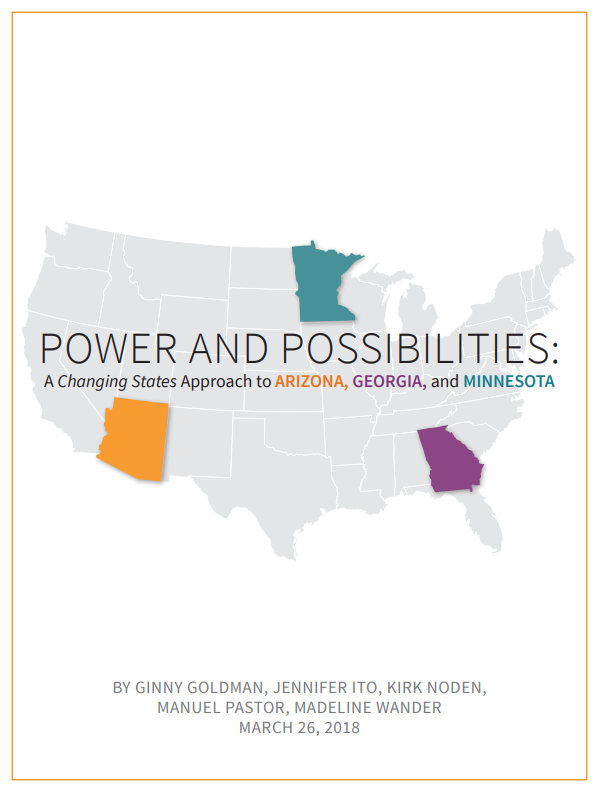
From 2008 to 2019, the USC Equity Research Institute (ERI) published reports under our previous name, the USC Program for Environmental and Regional Equity (PERE).
March 2018
By: Ginny Goldman, Jennifer Ito, Kirk Noden, Manuel Pastor, and Madeline Wander
In 2016, USC PERE introduced the Changing States framework to help determine pathways to attain governing power—or the ability to push for, pass, implement, and protect long-term changes to reduce social and institutional inequities and to improve living conditions.
Since then, strategists, organizers, funders, and others have applied Changing States across the country—and this report summarizes one such effort. Power and Possibilities draws lessons from applying the framework to three distinct yet representative places—Arizona, Georgia, and Minnesota—unpacking the context and dynamics for the work and identifying capacities and opportunities for attaining governing power in each state.
The hope is not only understanding the conditions for social change efforts, decision-making arenas where power is contested, and capacities for change in these three places, but also to elevate lessons that can be applied elsewhere and strategies that can be leveraged for regional and national impact. To this end, we point to four common themes—or rather, needs:
- Development of “strategic centers”—or, alignment of progressive power players that anchors shared theories of change and exercises independent political power;
- New narratives that should be shaped by local players in order to better fit political histories and shifting demographics;
- New forms of corporate work that involve developing an economic narrative and relationships with businesses; and
- Nuanced approaches to multicultural and cross-geographic alliances that reflect local contexts and histories.
We recognize these as broad directions, so this report also provides initial thinking about metrics for measuring success toward these goals.
Read our other publications by research area
- Immigrant Integration & Racial Justice
- Economic Inclusion & Climate Equity
- Social Movements & Governing Power
- Publications Directory



